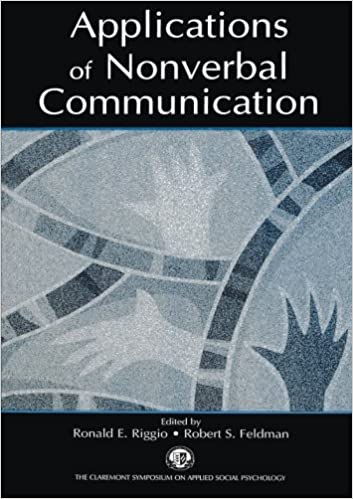 SEARCH
SEARCHNo products
Notice: Undefined index: total_noship in /var/www/prestashop/cache/smarty/compile/f8/b5/90/f8b590560ee23c0b806eb0670315623e14e8544e.file.blockcart.tpl.php on line 322
Notice: Trying to get property of non-object in /var/www/prestashop/cache/smarty/compile/f8/b5/90/f8b590560ee23c0b806eb0670315623e14e8544e.file.blockcart.tpl.php on line 322
Product successfully added to your shopping cart
There are 0 items in your cart. There is 1 item in your cart.
Author: Ronald E. Riggio
The Social Skills Inventory (SSI), also known as the Self-Description Inventory, assesses 6 basic social skills that underlie social competence. It evaluates verbal (social) and non-verbal (emotional) communication skills and identifies strengths and weaknesses. As such, the SSI acts as a reliable and valid abilities measure of Emotional Intelligence. The instrument is useful in individual and couples counseling, management and leadership training, and health psychology.
Clients respond to either the 90 item Original Form or 30 item Brief Form using a five-point scale, indicating the extent to which the description of the item applies to them. Scores are reported for one’s ability to send (encode), receive (decode) and manage (control) messages in both the social and emotional domains. A combined score is given to indicate global social and emotional intelligence.
The Social Skills Training Guide is a comprehensive resource guide for Social Skills training and development. The Guide provides a wide range of exercises to develop this domain of Emotional Intelligence.
Copyright © 1989-2018 by Ronald E. Riggio
- Buy It
- Sample Items
- Product Specs
- Translations
- Resources
- Related Products
- Manual$50.00Includes details on reliability, validity, scoring, normative information, and the SSI’s strong links to the measurement of Emotional Intelligence. A review-only copy of the SSI form is also included. PDFs are not refundable.In Stock
- Individual Report$15.00Builds a report that interprets an individual's SSI Social Intelligence and Emotional Intelligence scores. You invite participants to take the survey and Transform™ generates their reports.In Stock
- Report About Me$20.00Interprets and reports on your SSI Social Intelligence and Emotional Intelligence scores. You complete the survey and Transform™ generates your report. Transform will connect this report to the "Send To" email provided at checkout. Note: This product is for a single use, with automated survey administration. For multiple uses, buy instead the Individual Report product in quantity needed.In Stock
- Group Report$200.00Builds a report that calculates and summarizes average SSI Social Intelligence and Emotional Intelligence scores for a group of participants.In Stock
- Transform Survey Hosting (Data)$2.75Minimum purchase of 20. Allows you to administer the SSI as an online survey using Mind Garden's Transform™ System. Includes data collection: data file with participants' raw data and raw scale scores. Optionally, Individual Reports and Group Reports can be generated from the collected data - requires the purchase of report licenses. Customization services are available.In Stock
- Transform Survey Hosting: Brief Form (Data)$2.75Minimum purchase of 20. Allows you to administer the SSI Brief Form as an online survey using Mind Garden's Transform™ System. Includes data collection: data file with participants' raw data and raw scale scores. Customization services are available.In Stock
- License to Administer$2.75Minimum purchase of 50. Allows you to administer the SSI as an online survey via a non-Mind Garden survey system or as a paper and pencil survey. The downloadable PDF file includes one copy of the SSI, scoring key, and permission to administer the SSI up to the quantity purchased. The PDF is non-refundable.In Stock
- Social Skills Training Guide$50.00Resource guide for Social Skills training and development based on many years of scientific research and development on human social skills.In Stock
Features of the SSI
Purpose: Assess communication skills as they relate to overall social competence.
Length: 90 item Original Form (30 items for the Brief Form)
Average completion time: 30-40 minutes (10-20 for the Brief Form)
Target population: 8th grade reading level or higher
Administration: For individual or group administration
Uses of the SSI
- Individual counseling
- Couples counseling
- Leadership and management training
- Health psychology research
Scales
Emotional Expressivity
Emotional Sensitivity
Emotional Control
Social Expressivity
Social Sensitivity
Social Control
If you are unable to find the translation you need, you can request permission to make a translation.
Available with SSI Transform™ Survey Hosting:
Regardless of which translation you select, participants can select and change any of these languages while taking the survey.
- French
Available with SSI License to Administer:
These translations are available free of charge with your purchase of the license. Translations are provided in a separate pdf-format file. Select the language from the Translation drop-down list. Need multiple translations? Contact us.
- Arabic
- Czech
- Danish (Short Form Only)
- French
- German
- Hebrew
- Italian
- Norwegian
- Portuguese
- Swedish
Books

Ronald Riggio (2005). Applications of Nonverbal Communication. Routledge
The goal of this edited volume is to provide a much needed bridge between the research on nonverbal communication and the application of those findings. The book features contributions from some of the leading researchers in the field. These distinguished scholars apply their understanding of nonverbal communication processes to a variety of settings including hospitals and clinics, courtrooms and police stations, the workplace and government, the classroom, and everyday life. It explores nonverbal communication in public settings, in intimate relationships, and across cultures and general lessons such as the importance of context, individual differences, and how expectations affect interpretation.

Ronald Riggio (2013). Leader Interpersonal and Influence Skills: The Soft Skills of Leadership. Routledge
This edited volume explores different models, conceptualizations, and measures of leader interpersonal and influence "soft skills" that are so necessary for effective leadership. These include the communication skills, persuasion skills, political savvy, and emotional abilities used by leaders to inspire, motivate, and move followers toward the accomplishment of goals. The book emanates from the two-day-long 21st Kravis-de Roulet leadership conference, which brought together top scholars working in this area. The intent of the conference and this edited volume is to increase understanding of the interpersonal and influence skills, or "soft skills," of the leader, to highlight state-of-the-art research on the topic, and to provide clear, research-based guidelines for the development of leader skills.Chapter authors are recognized experts in their respective areas, and each section of the book will be introduced by an editor-authored chapter reviewing the specific topic area in brief.
Assesses personality traits with a full sphere of descriptive adjectives. The ACL provides a convenient, standardized method for recording and generating meaning for personal attributes of an individual. The ACL form can be used for self or observer ratings and Transform provides self or multi-rater assessment and reporting.
Assess the perceptiveness and accuracy with which an individual can appraise others and forecast what they might say and do.
Measures attitudes toward self in multiple contexts. Findings demonstrate the relationship of academic achievement to personal satisfaction in adult and school life.
An objective measure of the degree to which a person forgives another person, group or entity that has hurt him or her deeply and unfairly.
The method to identify interpersonal difficulties.
The benchmark measure of transformational leadership.
The PACL is a 153-item self-report and rating measure of Theodore Millon's eight basic personality patterns for use with normal adults and counseling or psychotherapy clients.
Measuring the Resource of Psychological Capital - Hope, Efficacy, Resilience and Optimism
A brief and effective measure of four common domains of psychological distress: Depression, Hopelessness, Anxiety, and Anger.
A valuable measure for understanding shyness as a unique and separate dimension of personality.

 LOGIN
LOGIN  BLOG
BLOG
 CART
CART






